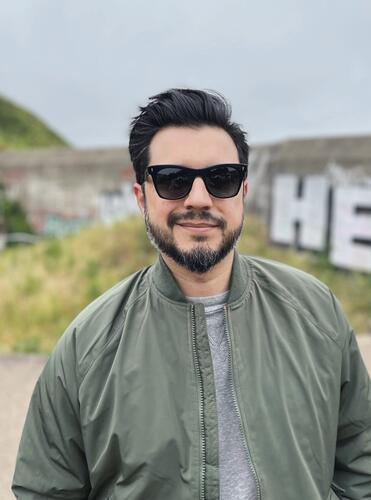
What is your current role at Yale University?
I am an Assistant Professor in the Department of Spanish and Portuguese.
What are your main responsibilities?
I conduct research on modern and contemporary Latin American literature and visual cultures, approached through the lenses of cultural theory and environmental studies. My work explores how cultural forms like poetry, novels, art, and film offer insight into the relationship between humans and nature and how they envision alternative futures that prioritize climate and environmental justice. My undergraduate classes and graduate seminars reflect these interests, focusing on the intersection of cultural production and the environment, encouraging students to critically engage with issues of climate justice, literature, and visual art in Latin America.
What do you like most about your work?
What I appreciate most is the opportunity to engage with incredibly talented colleagues and students on a daily basis. Being part of such a stimulating academic community pushes me to learn and grow continuously. It’s a privilege to develop my career in such an intellectually rewarding environment.
How does your job affect your general lifestyle?
Academic work can be deeply absorbing—not only because it’s demanding, but also because it’s fascinating. So maintaining a balance between work and personal life is essential. I make a conscious effort to protect personal time, whether it’s for rest, spending time with loved ones, or pursuing other passions or hobbies. It’s important to set aside time each week to disconnect, enjoy nature, exercise, and be with those who matter most.
How did you begin your career?
My career began with a love of reading and writing at a young age, which led me to pursue a degree in Literature at the Universidad Central de Venezuela in Caracas, my hometown. Those years cemented in me a deep interest in research and cultural analysis. I went on to complete a PhD at Columbia University, where my interests expanded to include film and contemporary art. During my PhD, I came in contact with environmental theory, which helped me to better understand the sociopolitical and economic realities of Venezuela, a country heavily impacted by the oil industry. This interdisciplinary background ultimately guided me toward continuing my career as a professor at Yale.
What steps would you recommend one take to prepare to enter this field?
Entering this field takes a mix of genuine passion for culture and the arts, along with the understanding that formal training is essential if you want to build a career around what you love. It’s important to realize that you’re not alone in your interest; you’re joining a wider community of scholars and practitioners who are already part of an ongoing conversation. To be a part of that dialogue, you need to explore the ideas and approaches that shape the field. So, balancing disciplined academic study with your personal passion is essential.
What skills, abilities, and personal attributes are essential to success in your job/this field?
Success in my field requires a blend of intellectual curiosity, critical thinking, and love for collaborative work. Strong writing skills are also critical for publishing academic essays and books. Lastly, balancing academic demands while maintaining personal well-being is key to having real success in this career.
If you could do it all over again, would you choose the same path for yourself? If not, what would you change?
I wouldn’t change a thing! It’s been an incredible journey, where even the setbacks have offered valuable lessons that brought me to where I am today. If anything, I would have tried to build more confidence earlier on. I would have made an effort to reach a sense of intellectual calmness and centeredness sooner, allowing me to focus more confidently on my own work without being overly preoccupied with abstract pressures or unattainable expectations.